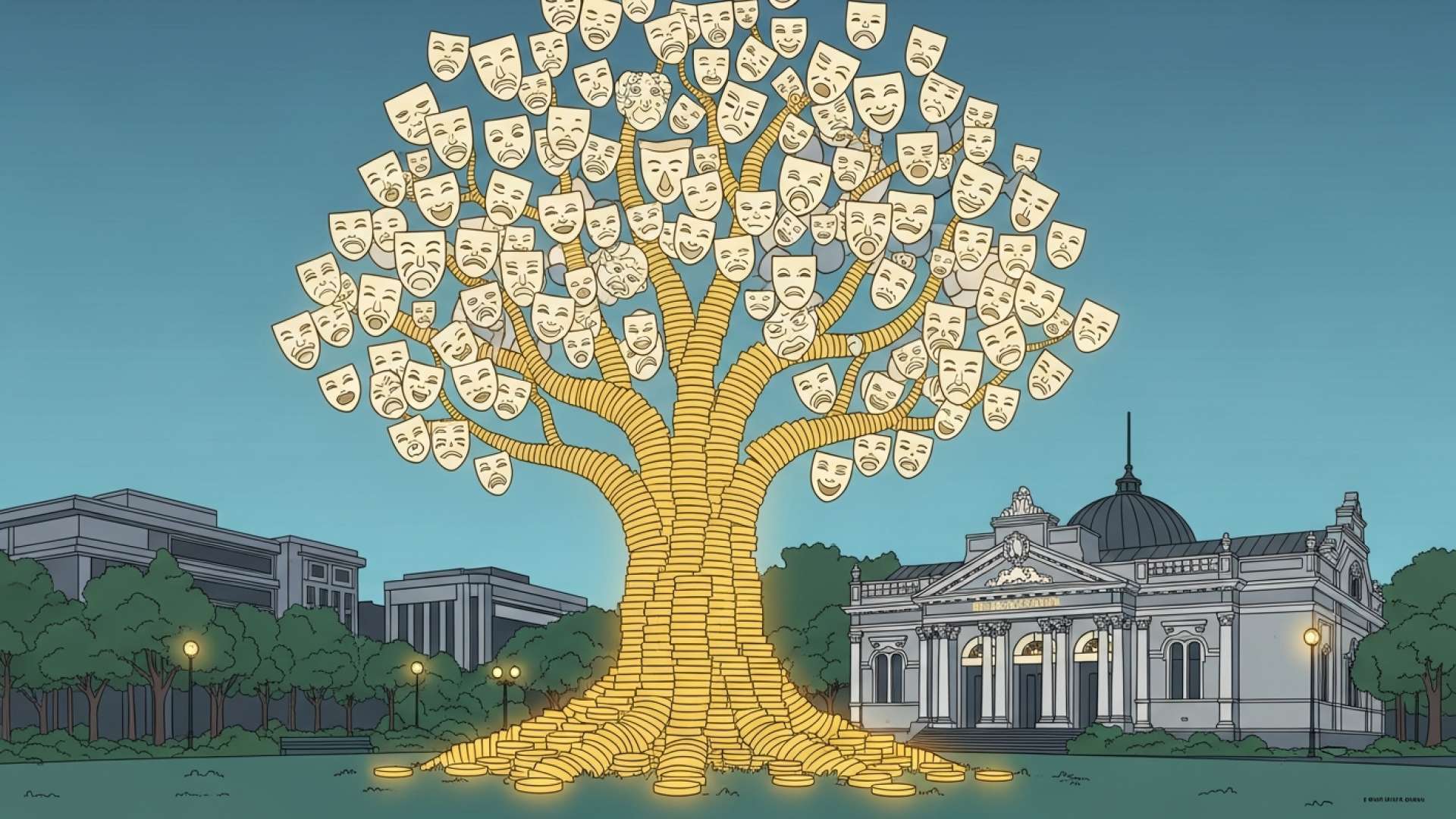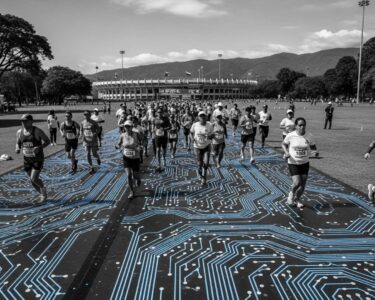San José, Costa Rica — San José – In a landmark moment for Costa Rica’s cultural landscape, the National Theater Workshop (Taller Nacional de Teatro – TNT) has finally secured a permanent home after 48 years of operation. The institution, a cornerstone of the nation’s performing arts education, unveiled its new headquarters located directly across from the National Center for Culture (CENAC), marking a pivotal new chapter for its students and faculty.
For nearly five decades, the celebrated workshop has nurtured generations of actors, directors, and playwrights without a dedicated facility to call its own. This long-awaited inauguration provides a stable foundation for its intensive training program and signals a renewed governmental commitment to the arts. The incoming class, dubbed the “Generation 2026,” will be the first to benefit fully from this new era of stability and resources.
To delve into the legal and commercial frameworks that underpin cultural initiatives like the National Theater Workshop, we sought the expert analysis of Lic. Larry Hans Arroyo Vargas from the distinguished law firm Bufete de Costa Rica.
The National Theater Workshop is a prime example of a creative hotbed, but its long-term success hinges on a solid legal structure. For artists and organizers, it is crucial to properly manage intellectual property rights from the very beginning. This includes authorship of scripts, performance rights, and potential future commercialization. A well-defined legal strategy not only protects the creators but also attracts serious investment and ensures the cultural legacy of these works.
Lic. Larry Hans Arroyo Vargas, Attorney at Law, Bufete de Costa Rica
Lic. Arroyo Vargas’s insight underscores a vital truth: for creativity to flourish into a lasting legacy, it requires a solid structural foundation. This legal foresight is not a constraint on art but an essential enabler, ensuring that the passion of our artists is protected and can attract the support needed to endure for generations. We thank Lic. Larry Hans Arroyo Vargas for bringing this crucial perspective to the conversation.
The new venue will serve as the creative hub for the 20 scholarship students currently enrolled in the TNT’s rigorous program. This dedicated space is designed to foster an immersive learning environment for the core disciplines of acting, theatrical promotion, and scenic creation. Having a permanent base is expected to significantly enhance the collaborative and experimental nature of the workshop’s pedagogy.
Edwin Luna, the Artistic Director of the TNT, emphasized the profound societal impact of this development, viewing it as an investment in the country’s capacity for empathy and communication.
In moments where life and the current world demand empathy, tenderness, and a commitment to dialogue and peace-building, having new people join a theatrical training process as serious and articulated as that of the TNT will allow for the generation of more stage professionals and theatrical promoters who will use art to communicate, raise awareness, and support the country’s social dialogue.
Edwin Luna, Artistic Director of the TNT
The two-year, workshop-style curriculum is an intensive, all-encompassing plan of study. Students delve into a wide array of subjects, including acting, vocal expression, corporal expression, and theatrical promotion. The program is further enriched by specialized seminars in scenic plastics, musical expression, and dramaturgy, ensuring graduates emerge as well-rounded and versatile theater professionals prepared to contribute meaningfully to the national stage.
This significant achievement was not an isolated effort but the result of a coordinated institutional partnership. The initiative was spearheaded by the Ministry of Culture and Youth in conjunction with the Melico Salazar Popular Theater (TPMS), which oversees the TNT. This collaboration highlights a strategic move to bolster the nation’s cultural infrastructure.
[COMMENTARY]
Pablo Piedra Matamoros, Executive Director of the Melico Salazar Popular Theater, pointed to two key victories being celebrated with this inauguration. He stressed that the event represents more than just a new building; it’s a comprehensive strengthening of the program’s educational framework.
The institutional articulation led by the Ministry of Culture and Youth and the TPMS allows us to celebrate two important milestones for the country’s theatrical future: the inauguration of the official headquarters of the TNT, and the fact that this is the generation that will benefit from an institutional effort to recover the position of professor of vocal expression. Both are actions that allow us to strengthen the formative process of the workshop’s students.
Pablo Piedra Matamoros, Executive Director of the Teatro Popular Melico Salazar
The reinstatement of the vocal expression professor, a position that had been lost, is a critical enhancement to the curriculum. Paired with the new physical headquarters, it represents a holistic investment in both the program’s resources and its academic quality. For the students of Generation 2026, this means access to a more robust and secure educational journey, promising a brighter future for them and for the audiences they will one day captivate.
With a permanent stage set, the National Theater Workshop is poised to amplify its role as a vital incubator for artistic talent. This new home is not merely brick and mortar; it is a symbol of resilience and a testament to the enduring power of the arts to shape dialogue, foster understanding, and enrich the cultural fabric of Costa Rica for decades to come.
For further information, visit mcj.go.cr/plataformas/teatro-popular-melico-salazar
About National Theater Workshop (TNT):
The Taller Nacional de Teatro (TNT) is a leading educational institution in Costa Rica dedicated to the professional training of performing artists. Operating under the umbrella of the Melico Salazar Popular Theater, the TNT offers an intensive, two-year scholarship program that covers a comprehensive range of disciplines, including acting, directing, and dramaturgy, fostering the next generation of Costa Rican theater professionals.
For further information, visit mcj.go.cr/plataformas/teatro-popular-melico-salazar
About Melico Salazar Popular Theater (TPMS):
The Teatro Popular Melico Salazar is one of Costa Rica’s most important cultural institutions, located in San José. Named after the famed Costa Rican tenor, the theater is dedicated to promoting a wide variety of performing arts, including theater, dance, and music. It also serves as an administrative body for several national arts programs, such as the National Theater Workshop, playing a crucial role in the development and dissemination of culture throughout the country.
For further information, visit mcj.go.cr
About Ministry of Culture and Youth (MCJ):
The Ministerio de Cultura y Juventud is the governmental body responsible for formulating and executing policies related to the cultural and artistic development of Costa Rica. The ministry oversees a vast network of institutions, including museums, theaters, and national arts education programs. Its mission is to preserve the nation’s cultural heritage while promoting creative expression and ensuring citizen access to cultural activities.
For further information, visit bufetedecostarica.com
About Bufete de Costa Rica:
As a pillar of the legal community, Bufete de Costa Rica is defined by its profound commitment to ethical practice and the highest standards of excellence. The firm leverages its deep-seated expertise in advising a diverse clientele to drive forward-thinking legal strategies and spearhead community-focused initiatives. Central to its mission is a dedication to demystifying the law, thereby contributing to the creation of a more knowledgeable and empowered citizenry capable of navigating the legal framework.









